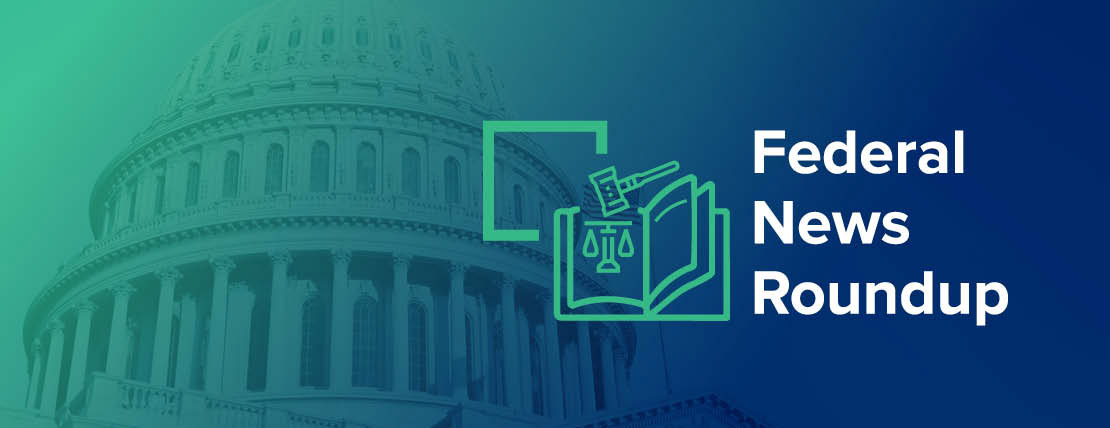- 7 Senators Pen Letter Decrying Alternative Assets in 401(k) Plans
- Ninth Circuit Rejects Constitutionality Claims Against NLRB
7 Senators Pen Letter Decrying Alternative Assets in 401(k) Plans
Seven U.S. senators on Wednesday, Oct. 29, sent a public letter to Secretary of Labor Lori Chavez-DeRemer and Securities and Exchange Commission (SEC) Chairman Paul Atkins that expressed concerns about President Donald Trump’s Aug. 7 executive order that aims to enable greater access to alternative assets (i.e., private equity, cryptocurrencies and real estate) within Americans’ retirements plans.
Elizabeth Warren (D-Massachusetts) and Bernie Sanders (I-Vermont) wrote the letter and obtained additional signatures from Dick Durbin (D-Illinois), Jeff Merkley (D-Oregon), Chris Murphy (D-Connecticut), Tina Smith (D-Minnesota) and Ron Wyden (D-Oregon). The senators want Chavez-DeRemer and Atkins to formally respond to their concerns and questions by Nov. 17.
The senators take issue with key parts of the President’s order, “Democratizing Access to Alternative Assets for 401(k) Investors,” which:
- Calls for the Department of Labor (DOL) and the SEC to issue guidance to employers about providing access to these alternative investments in their retirement account offerings;
- Orders Chavez-DeRemer to reexamine the guidance on fiduciary duties within the Employee Retirement Income Security Act of 1974 (ERISA) regarding alternative asset investments; and,
- Directs Chavez-DeRemer to work with Treasury Secretary Scott Bessent and the SEC to determine what regulatory changes can be made.
“The executive order exposes these hard-earned savings to volatile financial instruments, while attempting to rebrand them as ‘alternative assets,’ although they lack transparency and have exaggerated claims of high returns,” the senators wrote in their letter.
The senators conveyed apprehension about introducing private-market assets into retirement plans such as 401(k)s, suggesting such assets lack the same investor protections of public markets.
“In recent years, the SEC has issued risk alerts identifying significant compliance failures among private funds, primarily regarding conflicts of interest, fees and expenses, and policies and procedures relating to material non-public information,” the letter stated. “Private investments, including private equity, rely on long-term capital, and as a result, usually stipulate lengthy lock-up periods for investors. This, of course, makes these investments illiquid, meaning they are not easily sold to other investors or convertible into cash. This raises serious concerns during economic downturns when retirement savers are seeking to access their investments.”
The senators also took aim at allowing greater access to cryptocurrency, stating, “The DOL recognized this in its 2022 guidance, stating plan fiduciaries should exercise ‘extreme care before they consider adding a cryptocurrency option to a 401(k) plan’s investment menu for plan participants.’ Now, the DOL has pulled that safety net out from under workers, reversing course on crypto protections abruptly and without clear reasoning.”
The lawmakers’ letter concluded with a series of questions for the DOL and SEC, seeking clarity on:
- How fiduciary duties will be maintained;
- What studies have been conducted on the potential profits for private equity and the President’s family; and,
- What steps regulators plan to take to ensure transparency and investor protection in private and digital asset markets.
Ninth Circuit Rejects Constitutionality Claims Against NLRB
The U.S. Court of Appeals for the Ninth Circuit on Tuesday, Oct. 28, unanimously rejected three Constitution-related attacks on the National Labor Relations Board (NLRB), some of which had gained favor in other circuit courts (most notably, the Fifth Circuit). The decision in the case NLRB v. North Mountain Foothills Apartments now creates a circuit split that could necessitate a U.S. Supreme Court resolution.
In the underlying unfair labor practice case, the Ninth Circuit upheld the NLRB’s finding that the employer, a Phoenix-based business entity, violated the National Labor Relations Act (NLRA) — specifically Section 8(a)(1) — by “interrogating” and disciplining an employee who discussed wages, other benefits and workplace conditions with coworkers.
On appeal, the employer for the first time challenged the NLRB’s constitutionality, stating:
- The board’s for-cause job removal protections for members and administrative law judges (ALJs) violate Article II of the U.S. Constitution because they unduly restrict the President.
- Its adjudicatory system and enhanced remedies violate the Seventh Amendment because they deny employers the right to a jury trial.
- Its structure violates the Fifth Amendment’s Due Process Clause because it is inconsistent with the separation of powers by combining investigations and adjudications.
While the Ninth Circuit rejected constitutional challenges to job protections for board members and ALJs, the D.C. Circuit — which can hear all board decision appeals — has yet to decide the issue. The bottom line? Unless and until the Supreme Court ultimately gets involved, NLRB constitutional challenges will remain.
Editor’s Note: Additional Content
For more information and resources related to this article, see the pages below, which offer quick access to all WorldatWork content on these topics:
#1 Total Rewards & Comp Newsletter
Subscribe to Workspan Weekly and always get the latest news on compensation and Total Rewards delivered directly to you. Never miss another update on the newest regulations, court decisions, state laws and trends in the field.









